 |
 |
 |

TDLC and the Ethics of Emerging Technologies
TDLC scientists Drs. Andrea Chiba, Janet Wiles, Pat Churchland and Terry Sejnowski were awarded a grant from the National Science Foundation to create a cross-discipinary network of scientists and ethicists to consider the ethical use of a select set of emerging technologies for application to the science of learning, education, rehabilitation, medicine, and augmented humans.
In March 2016, they held an international symposium, TOMORROW’S WORLD: The Ethical Use of Emerging Technologies Symposium, to bring technologists, scientists, ethicists, and policymakers together to explore the most pressing issues with respect to use of these technologies for learning, rehabilitation, and teaching. The workshop was co-sponsored by the Australian Research Council, and the Centre of Excellence for the Dynamics of Language at the University of Queensland, Brisbane, Australia. The event was facilitated by Roger Bingham, Director of the UCSD Science Collaboratory and the Science Network, an online science agora. Click here for more information about the symposium, and here to view the program.
To continue the conversation, we are holding another workshop in San Diego on November 10-11, 2016 that will feature a public forum co-sponsored by the International Society for Neuroethics as a satellite event of the Annual Meeting Of the Society for Neuroscience and a workshop at UC San Diego.
Keep your eyes out for more information about this event! |
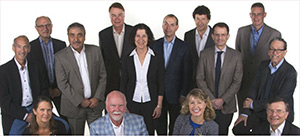 Focus: Bright Minds Battling Dark Diseases Focus: Bright Minds Battling Dark Diseases
The San Diego Union-Tribune hosted "13 of San Diego's top scientists, engineers and physicians for the group photo shoot and story about "how the region is shaping President Obama's initiatives on the brain,cancer, the microbiome and precision medicine." TDLC / Salk researcher Dr. Terry Sejnowski is featured inthe article. (SD U-T, 6/25/16) Read the article here!
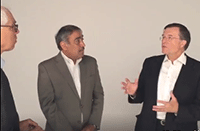 In addition,UC San Diego Chancellor Pradeep Khosla and Dr. Terry Sejnowski were interviewed in a behind-the-scenes video of the photo shoot (Dr. Sejnowski interview begins ~1 min. 30 sec.). Click here to watch the video! (6/8/16, SD U-T) In addition,UC San Diego Chancellor Pradeep Khosla and Dr. Terry Sejnowski were interviewed in a behind-the-scenes video of the photo shoot (Dr. Sejnowski interview begins ~1 min. 30 sec.). Click here to watch the video! (6/8/16, SD U-T)
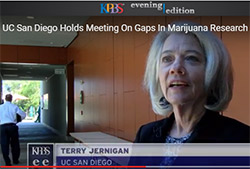
UC San Diego Holds Meeting On Gaps In Marijuana Research
Features TDLC's Dr. Terry Jernigan, who is one of the local scientists leading the Adolescent Brain Cognitive Development (ABCD) study.The ABCD study is the largest long-term study of brain development and child health in the United States; scientists will track brain development in 10,000 American kids over the next decade. (KPBS, 4/13/16) More
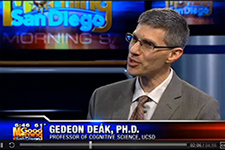 T
DLC investigator Dr. Gedeon Deak interviewed on KUSI News! T
DLC investigator Dr. Gedeon Deak interviewed on KUSI News!
Dr. Deak discusses a new study that found that "Spanking" children doesn't help and may lead to long term and short term problems. Dr. Deak explains how some of the determinations were discovered (5/4/16).
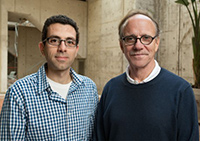 Adult brain prunes branched connections of new neurons Adult brain prunes branched connections of new neurons
(Salk News, 5/2/16)
Salk study is first to closely follow development of new neurons in the adult brain, giving potential insight into neurodevelopmental disorders such as autism and schizophrenia (photo: Goncalves, Gage; Credit: Salk Institute)
TDLC investigator Dr. Fred Gage is a senior author of the study.
 Read more in Salk News Read more in Salk News
 Nature Neuroscience article (May 2, 2016) Nature Neuroscience article (May 2, 2016)
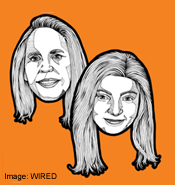 25 Geniuses who are Creating the Future of Business (WIRED, 4/26/16) 25 Geniuses who are Creating the Future of Business (WIRED, 4/26/16)
Dr. Marni Bartlett (cofounder & Lead Scientist of Emotient) is featured with Rana El Kaliouby (Cofounder and Chief Strategy and Science Officer of Affective), for their face-recognition technology. Wired: "There are two scientific heavyweights behind a pair of startups attempting to commercialize software that can decipher facial expressions and track emotions." More
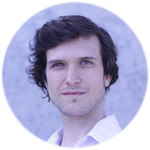 Former TDLC trainee Tim Mullen: Currently Founder and CEO of Qusp! Former TDLC trainee Tim Mullen: Currently Founder and CEO of Qusp!
As a Ph.D. graduate from UC San Diego in the Dept. of Cognitive Science and Institute for Neural Computation, Dr. Tim Mullen envisioned creating a company that embedded advanced neurotechnology into everyday life. And it appears that he has done just that! He recently founded a company called Qusp. As their website describes: "Qusp offers customized scientific and R&D solutions for corporate, academic, medical, government, and pharmaceutical sectors. Our expert research scientists will work with you to identify and develop advanced neurotechnology solutions for your most challenging problems."
Dr. Mullen explains, "We focus mainly on Brain Computer Interfaces and on advanced methods for neural state decoding to interpret the signals that come out of our brains, and then relate them to behavior and cognition." He helped to create Qusp to "allow anybody, anytime, anywhere to access powerful neurotechnology that comes out of laboratory environments, but to do that with very little expertise, very little domain knowledge. To be able to find out with one line of code, your attention state, your emotional state, and with a system that provides that information through the Cloud." In fact, Dr. Mullen believes that their company's API framework is the world's first platform for neural computation operating on the Cloud through a Web API interface in real time! Learn more about Qusp
|
|
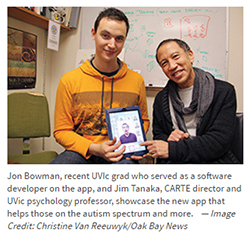
App promotes interaction for children on autism spectrum
(Oak Bay News, 3/29/16)
The article features the Let's Face It scrapbook app developed by TDLC's Jim Tanaka and his team at the University of Victoria's Centre for Autism Research Technology Education (CARTE). More
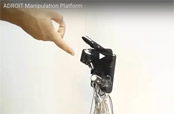 Watch a robot hand learn to manipulate a stick Watch a robot hand learn to manipulate a stick
TDLC Principal Investigator Dr. Emanuel Todorov and his team from the University of Washington have created a five-fingered robotic hand that can actually teach itself how to manipulate a stick! (Parent Herald, 5/12/16) More 
|
|
|
| |
| |
|
This message was sent from:
The Temporal Dynamics of Learning Center (TDLC.UCSD.EDU),
University of California, San Diego,
9500 Gilman Drive, La Jolla, CA 92093
To learn more about TDLC, please visit us on the web at: TDLC.UCSD.EDU
Please contact webmaster@tdlc.ucsd.edu to unsubscribe.
TDLC is a Science of Learning Center (SLC),
one of six SLCs funded by the National Science Foundation. NSF grant #SMA 1041755
|
|
 |
 |
July 2016 |
|
 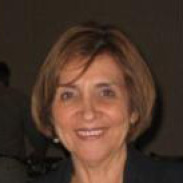
TDLC's The Educator Network (TEN)
Recent
Post:
Building a Foundation of Computer Science for All
Doris Alvarez shares a National Science Foundation (NSF) article that discusses how computer science has become a new basic skill. In President Obama's 2016 State of the Union address, he laid out a goal of expanding computer science in schools nationwide. The White House has since announced a new initiative, CS for All, that aims to give all students in the U.S. the opportunity to learn CS. The NSF and the U.S. Department of Education will serve as the lead federal agencies. More
|
|
|
 |
 |
Small Molecule Keeps New Adult Neurons From Straying, May Be Tied to Schizophrenia
(The Salk Institute, 7/6/16)
Dr. Rusty Gage, TDLC investigator and Salk scientist, is a senior author of the study. More |
 |
Princess Leia brainwaves may help you learn in your sleep
(New Scientist, 6/24/16)
TDLC's Dr. Terry Sejnowski discovered patterns of electrical activity that "sweet through the sleeping brain in a circular motion that resembled the headphone-like hairstyle made famous by Carrie Fisher in the Star Wars movies." More |
 |
Remembering the bold and brilliant Francis Crick
(San Diego U-T, 6/4/16)
TDLC Investigators Drs. Terry Sejnowski and Fred “Rusty” Gage share memories of their time with Francis Crick at the Salk Institute. More |
 |
Could early music training help babies learn language?
(UW LIFE Center, 5/12/16)
Research at UW LIFE Center (NSF Science of Learning Center) with Dr. Patricia K. Kuhl.
More |
 |
Powerful Brain Signals between Seizures May Explain Memory Problems in Patients with Epilepsy
(4/25/16, NYU Langone Medical Center)
TDLC investigator Dr. Gyorgy Buzsaki is
co-author of the study, along with colleagues at NYU Langone Medical Center. More |
 |
Science brought to forefront in 'Fastball' documentary
(TRIB Live, 3/23/16)
TDLC researcher Dr. Tarr, along with his Carnegie Mellon colleagues Drs. Franklin, Urban and Verstynen, explain the science behind the pitch. More |
 |
The Beasts That Keep the Beat (Quanta Magazine, 3/22/16)
TDLC's Dr. John Iversen is featured, with Aniruddh Patel, in their early research of musicality in an
Eleonora cockatoo called Snowball.
More 
|

|
Meditation and the Brain:
There may be a neurological basis for the benefits that many people report from meditation
A new study from Yale University suggests that the brains of experienced meditators may actually work differently than brains of those who don't meditate. The Yale team conducted fMRI scans on both experienced and beginning meditators as they practiced three different meditation techniques. The researchers found that experienced meditators had "decreased activity in areas of the brain called the default mode network, which has been implicated in lapses of attention and disorders such as anxiety, attention deficit and hyperactivity disorder, and even the buildup of beta amyloid plaques in Alzheimer's disease."
The results suggest that meditators may have developed a "new" default mode in which there is more present-centered awareness, and less "self"-centered.  More More
(reference: Yale News)
 Read more in PNAS Read more in PNAS
|
|
|
|
 |

![]()
